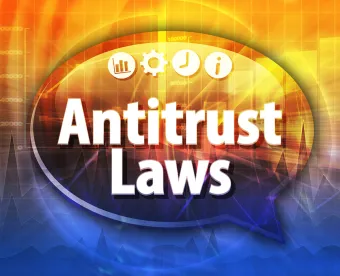The Federal Trade Commission is closing out the year with vigorous enforcement of the Hart Scott Rodino Antitrust Improvements Act of 1976 (“HSR Act”) by imposing fines totaling nearly $2 million. On December 22, 2021, the FTC settled charges in two separate matters for repeated violations of the HSR Act. In one, investment fund operator Biglari Holdings Inc. will pay $1.4 million to settle charges that it failed to file the required HSR notification for stock acquisitions it made in 2020. In the other, Clarence L. Werner, founder of Werner Enterprises, Inc. will pay $486,900 to settle charges that he failed to file for acquisitions between May 2007 and February 2020 of his company’s stock.
As discussed below, neither case involved an acquisition of stock that standing alone triggered a reporting requirement. However, it underscores that the HSR notification standards are cumulative, and parties need to look back and determine whether an incremental acquisition puts them over the notification threshold. In these cases, the acquisitions did, and the FTC is making the parties pay the price of their failure to file—even when no M&A activity was involved.
The HSR Act requires companies and individuals acquiring voting securities or assets, where jurisdictional dollar thresholds are met, to file a premerger notification and report form with the FTC and the Department of Justice and to observe a statutory waiting period (usually 30 days) prior to consummating the transaction. Smaller transactions may also be reportable due to the need to aggregate new acquisitions with current holdings. The notification process and waiting period are designed to allow the federal antitrust agencies to investigate the potential competitive impact of the proposed transaction before it is consummated. The maximum civil penalty for HSR violations is currently $43,792 per day.
Biglari Holdings Inc.
Biglari’s alleged violation was the result of its failure to file an HSR notification for acquisitions it made in March 2020 of shares of Cracker Barrel Old Country Store, Inc., that, together with its prior holdings of Cracker Barrel, caused it to exceed an HSR filing threshold. Prior to March 2020, Biglari already held Cracker Barrel stock. Then, on March 16, 2020, Biglari acquired additional Cracker Barrel stock through two entities that, on their own were below the reporting threshold, but when aggregated with the stock it already held, resulted in it exceeding the threshold. Biglari did not identify the error on its own. According to the complaint, Biglari made a corrective filing in June 2020 for the March 2020 acquisitions, only after the FTC contacted the company to ask why no filing had been made. The alleged violation lasted from the March 16, 2020 acquisitions until July 20, 2020 when the waiting period for the corrective filing expired.
Biglari claimed that it was unaware that it had to aggregate its current holding with the new acquisitions. The FTC’s Director of the Bureau of Competition said that such ignorance “even if true, is grossly negligent.” Particularly as this was not Biglari’s first HSR violation. Biglari had previously been fined $850,000 in 2011 for an HSR violation related to another purchase of Cracker Barrel stock. As part of its corrective filing at the time, Biglari committed to seeking advice from HSR counsel prior to making future acquisitions of stock.
Clarence L. Werner
Werner’s alleged violation was the result of his failure to file an HSR notification for several acquisitions of stock of Werner Enterprises, Inc.—the company he founded. According to the complaint, in May 2007 Werner exercised options to acquire Werner Enterprises stock that, when aggregated with stock he already held of the company, caused him to exceed the reporting threshold. In 2009, according to the complaint, Werner made four open market purchases of Werner Enterprises stock. In November 2012, Werner again exercised options to acquire Werner Enterprises stock that exceeded the reporting threshold. Finally, in February 2019, Werner received additional Werner Enterprises stock that also crossed the reporting threshold when some restricted stock vested. Then, in January 2020 Werner’s counsel notified the FTC that the prior acquisitions were being analyzed and that it was likely that multiple corrective filings would be required. According to the complaint, at least as of that January 2020 date, Werner was aware of his prior HSR Act violations. Nonetheless, according to the complaint, Werner made two additional acquisitions of Werner Enterprises stock in February 2020 through the vesting of restricted stock awards. Werner submitted his corrective HSR notifications in March 2020.
Werner’s alleged violation lasted from May 2007 through April 2020. In the complaint, the FTC stated that “in particular, for very large open market acquisitions, it is not excusable negligence to be unaware of the HSR Act legal requirements.”
The proposed settlements in both matters will be published in the Federal Register for a 60-day public comment period in accordance with the requirements of the Tunney Act. At the end of the comment period, the U.S. District Court for the District of Columbia may approve the proposed settlements upon a finding that they are in the public interest.
These cases remind investors—both institutional and individual—to actively evaluate all changes in their voting security holdings for potential HSR reporting triggers. Notably, neither of these cases involved traditional M&A activity, nor did they raise any substantive competitive concerns.





 />i
/>i
